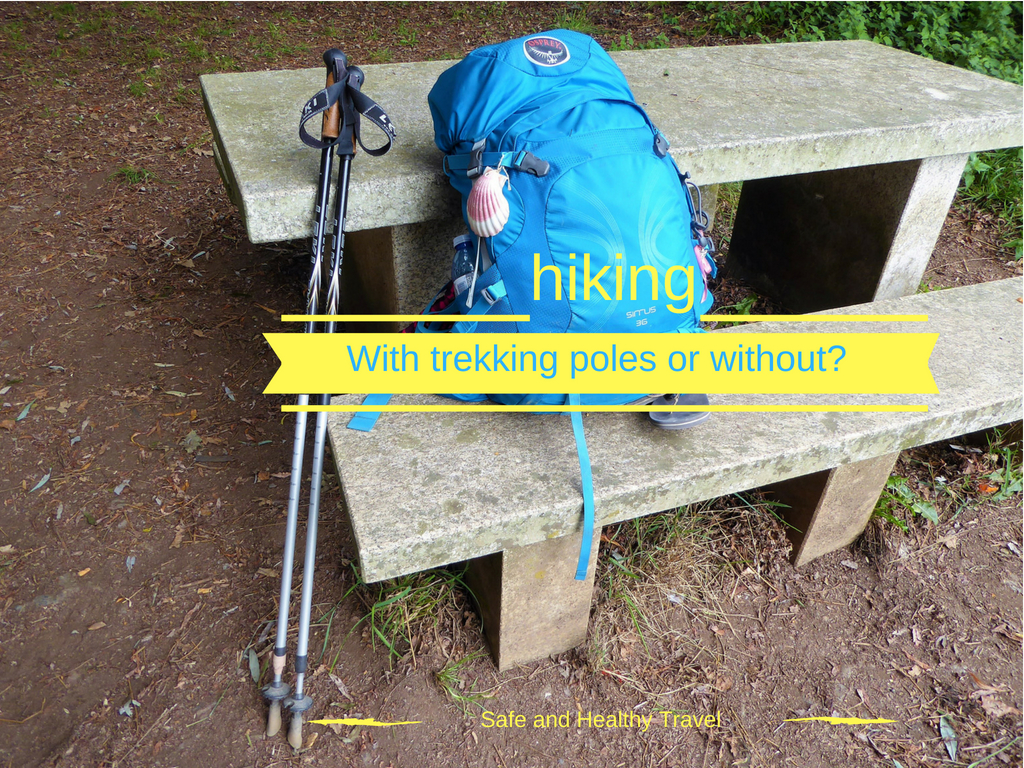After walking the full 800 kilometers of the Camino Frances in 2016, I can say one thing with certainty: trekking poles are a game-changer. What started as skepticism about those “clunky poles” ended in 35 days of daily use and a completely transformed hiking experience.
My Camino experience has convinced me.
Discover why trekking poles can transform your hiking adventures – from day trips to long pilgrimages.
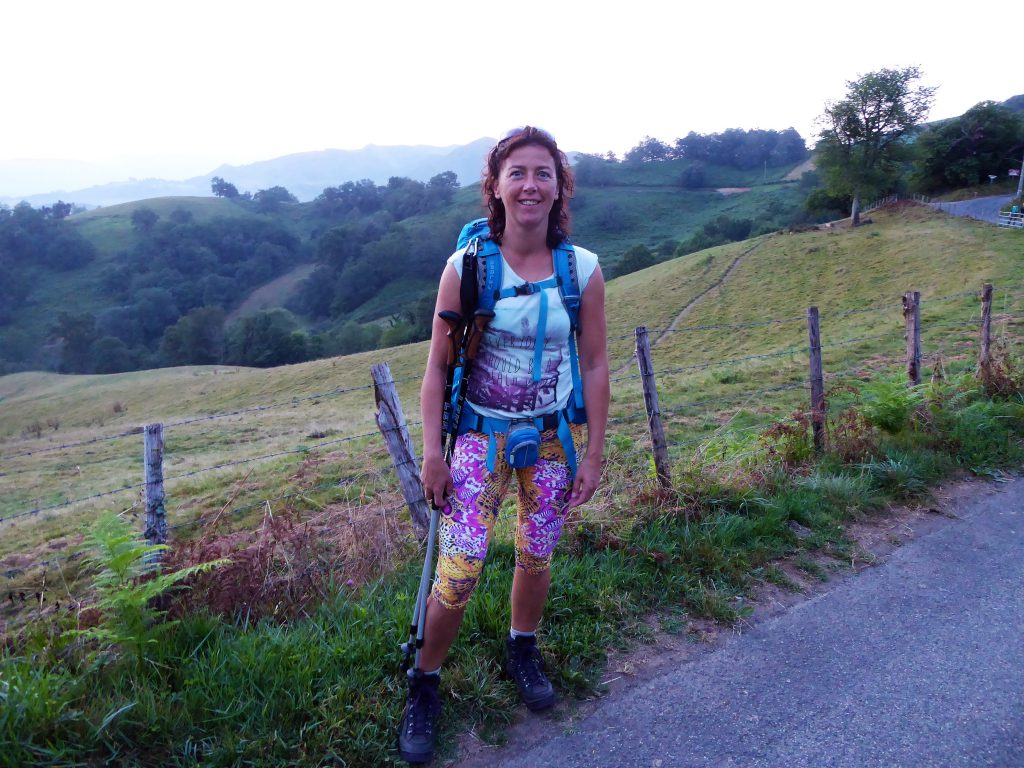
The first climb conquered #caminofrances
Hiking with Trekking Poles or Not?
The first day on the Camino Frances pilgrimage, I started walking with Jean Marcel and Claire from Saint Jean Pied de Port. Before we set off, Jean Marcel looked me over carefully. He then adjusted my backpack a bit better on my back and hips and also adjusted the trekking poles a bit and gave me the starting signal 🙂 I was ready according to him.
I practised once in the Netherlands before I started, but I felt so stupid with those walking sticks… This was on flat terrain in the Netherlands. But of course, there are also a number of mountain walks in the Netherlands, and I can imagine that you would take your walking sticks with you there.
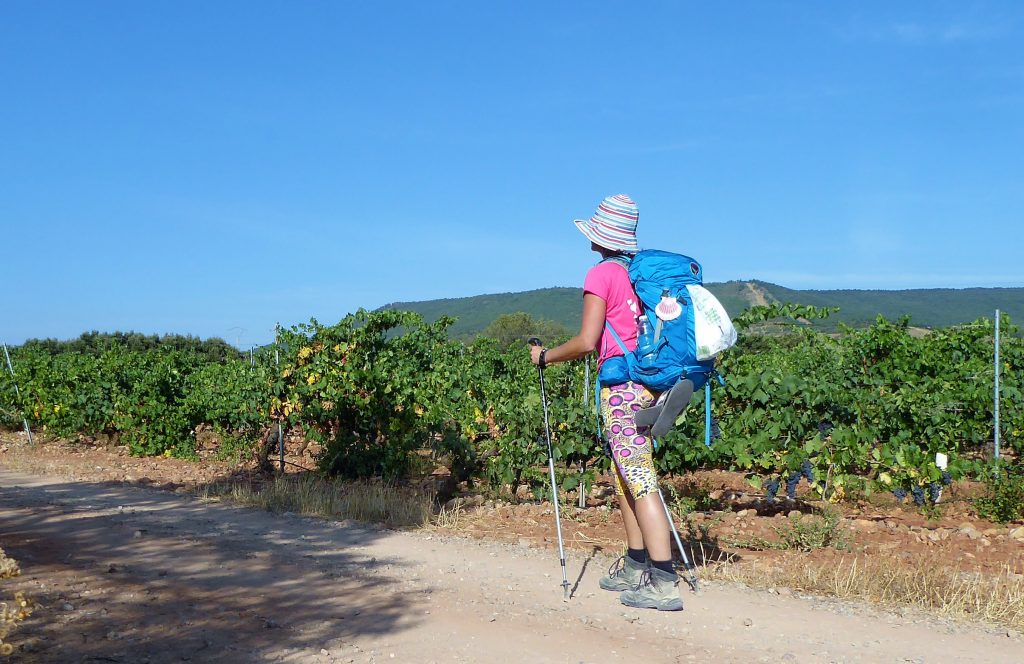
Why Use Trekking Poles? The Confirmed Benefits
1. Up to 30% Less Strain on Your Body
Trekking poles reduce the load on your muscles, back, and knees by up to 30%. This means:
- Less chance of injuries
- Less fatigue during long walks
- Faster recovery after intensive hiking days
2. Improved Posture and Stability
By walking with trekking poles you:
- Maintain a straighter, healthier posture
- Reduce neck and back complaints
- Improve your balance on uneven terrain
- Reduce the risk of falling
This naturally helps you last longer on the hiking day itself. But what about the long term? For back, shoulders, but also hips and knees, good posture is so important! And how nice is it that you simply cover the kilometers a bit more easily. Especially since you may also have a ‘heavy’ bag on your back that you have to carry.
3. Increased Hiking Performance
Faster pace and greater range: where you could previously manage 7 kilometers, you now easily reach 10 kilometers. On the Camino I walked 20-43 kilometers daily, much more than the 20 kilometers I had ever practiced at home.
4. Full Body Workout
Trekking poles activate your upper body, allowing you to:
- Burn more calories
- Strengthen your arms and shoulders
- Improve blood circulation
- Prevent swollen hands and fingers
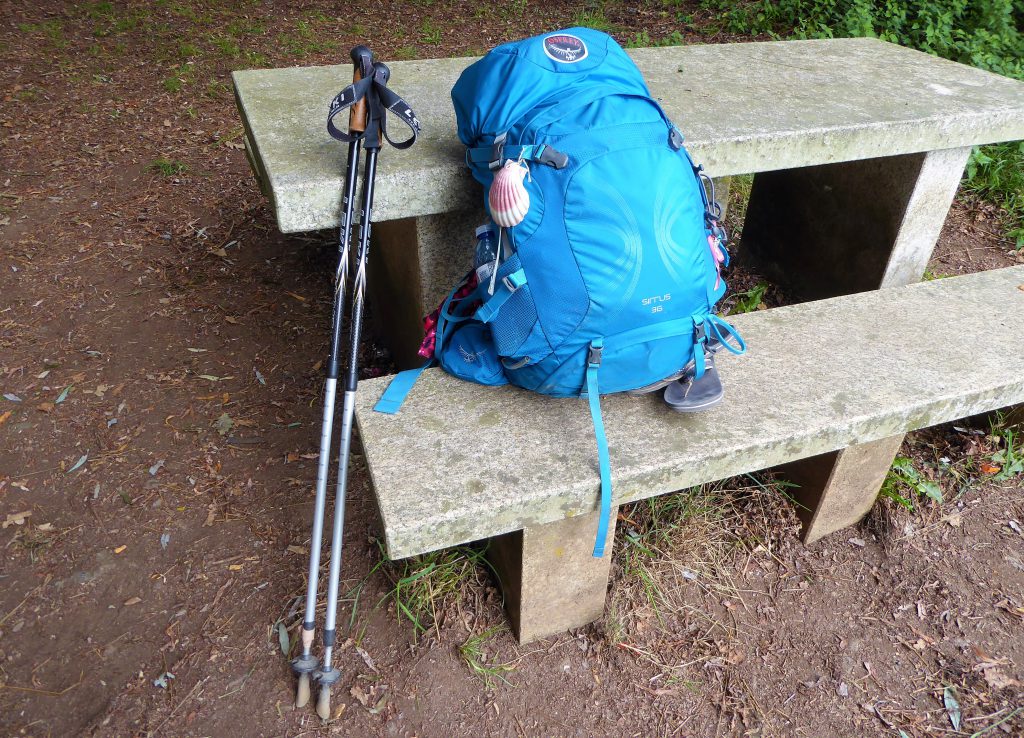
Are you going to hike with trekking poles or not?
Disadvantages and How to Solve Them
Limited Hands-Free
Problem: Difficult to eat, photograph, or read a map while hiking. Solution: Use carabiner clips on your backpack to quickly hang up the poles.
Noise Pollution and Terrain Damage
Problem: Tapping of metal tips on pavement. Solution: Use the rubber caps, especially those with an angled shape that move along with your walking direction.
Reliability
Tip: Never lean with your full weight on one pole. They can break or slip away.
Which Trekking Poles to Choose?
Telescopic vs Fixed Length
Always choose adjustable (telescopic) trekking poles because:
- They fit in your backpack during transport
- You can adjust them to different terrains
- Airlines have fewer problems with them
Important Features
- Comfortable grips (cork or foam)
- Adjustable wrist straps
- Interchangeable tips (metal for rocks, rubber for paved paths)
- Lightweight material (carbon or aluminum)

Practical Tips for Beginners
Setting the Right Length
- Flat terrain: Elbow at 90° angle
- Uphill: 5-10cm shorter
- Downhill: 5-10cm longer
Correct Techniques
- Plant the pole opposite to your foot (right pole with left foot)
- Use the wrist strap for support without gripping tightly
- Plant the pole at an angle backward, not vertically
Practice Before You Leave
Start with short walks on flat terrain to master the movement. It may feel unnatural, but within a few walks it will be in your muscles.
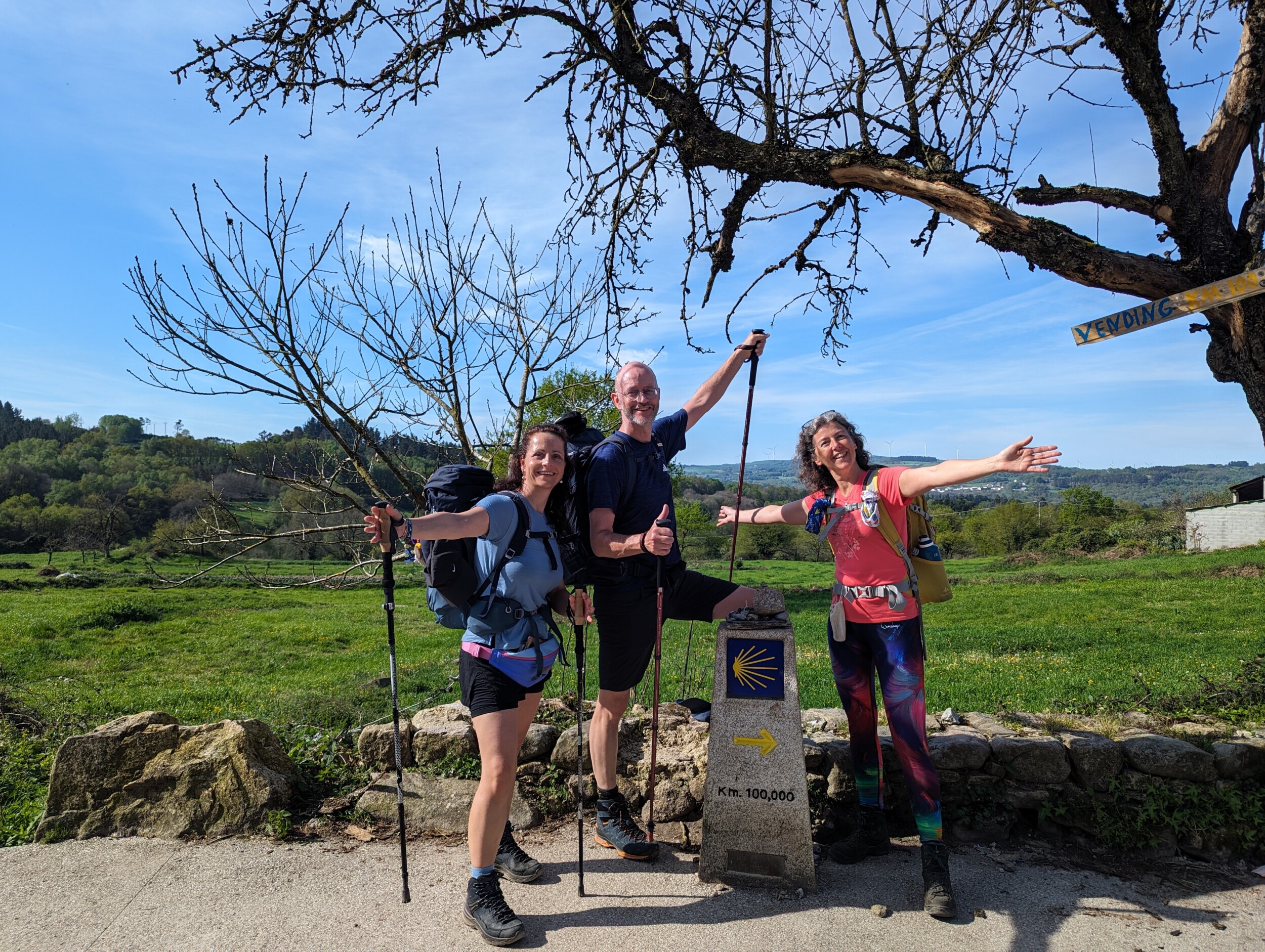
For Which Hikes Are Poles Ideal?
Absolutely Recommended:
- Multi-day treks (like the Camino)
- Mountain hikes with lots of elevation change
- Hikes with backpack (weight > 10kg)
- Difficult terrain (loose gravel, mud, snow)
My Camino experiences have taught me that trekking poles are more than just aids – they help me get through my hiking days better and with less energy consumption. Whether you’re a beginning hiker or experienced trekker, the benefits far outweigh the small adjustments you have to make.
Do you ever walk with trekking poles? What is your experience?

Did you find these tips useful? Save them to your favorites or share them with someone else!

Hiking with Trekking poles or without?
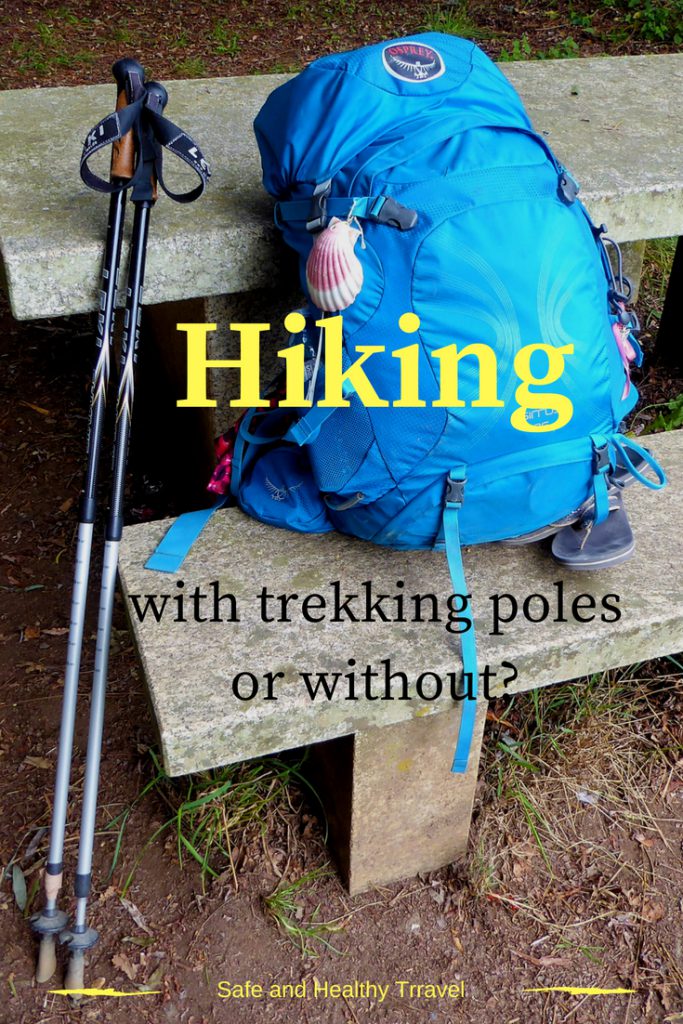
Want to read some more?
- How a Pilgrim spends a day
- Poon Hill Trek – 8 day / 7 nights – Nepal
- Hiking to the Summit of Mt Pulag – Philippines
- 3 Short Hikes @ Engbertsdijksvenen – Netherlands
- 10 minutes in summertime – Thingvellir Nature Park – Iceland
Or how about the Camino?
Will you join me on the last 200 km to Santiago de Compostela?
